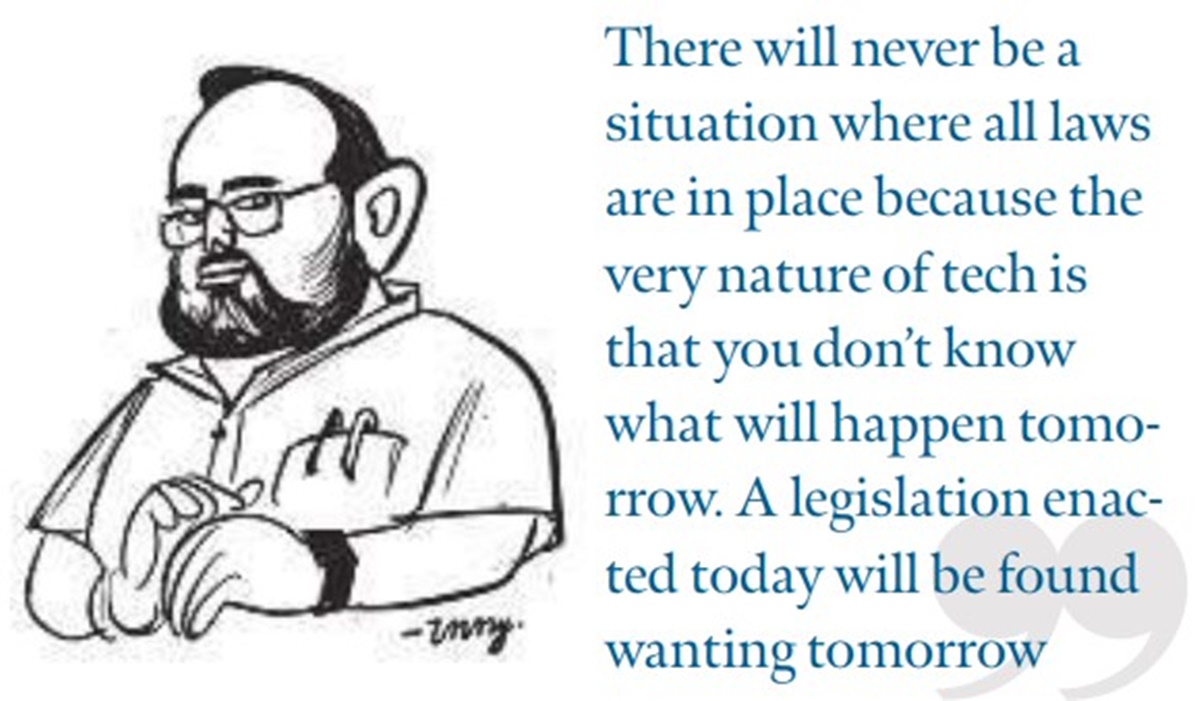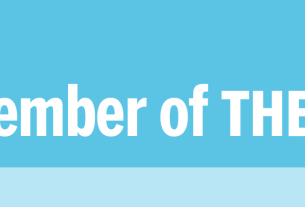[ad_1]
Liz Mathew: What is the tangible result of the Skill India campaign at a time when unemployment has become an issue although the government says that 1.07 crore people were skilled in 2021. How will it impact young voters?
Since the Skill India launch in 2016, about 3.2 crore youth have been skilled, upskilled and reskilled. They have acquired capabilities for either micro entrepreneurship or self-employment. The Periodic Labour Force Survey mapping unemployment shows that from 2017 to the time before the pandemic broke out (2020), the unemployment numbers were declining steadily. Then Covid-19 led to workforce disruption. In our sample surveys, we found that 67-70 per cent of those who go through short-term training programmes get employment.
Liz Mathew: The requirement for the workforce keeps changing. What are we doing to make them employable?
Skilling is a demand-driven programme and is developed in partnership with the industries that are going to be the employers. Currently, for example, in the inventory of skills offered by the Skill India ecosystem, there are more than 5,000 types of job roles that range from blue collar to white collar, from carpenters to AI engineers. So, a spectrum of skills is available.
Liz Mathew: The Periodic Labour Survey shows a drop in the women workforce. Is the government concerned about this?
Post-Covid, there has been a deep disruption and change in the type of workforce required by the industry and its composition. For example, one of the almost non-negotiable requirements in the workforce today is digital skills, regardless of whether you are a carpenter or a factory shop-floor worker. Today, more and more women are now participating in the workforce through the remote model. For example, in the IT sector, out of the eight-nine lakh people that have been recruited this year, 4.5 lakh are women. In the electronics and manufacturing industry, with two lakh additional jobs, almost 80 per cent are women. And these women are getting skilled, not just on the ground in the plant, but also digitally.
Liz Mathew: Before the Uttar Pradesh elections, you were meeting start-ups and entrepreneurs there. You have also been asked to go to Gujarat, now an election-bound state. How does this government ensure that beneficiaries of its programmes transform into a support base?
In a month, I visit about four or five campuses around the country, in places like Gujarat, Uttar Pradesh, Kerala and Karnataka. I tell them a few facts of the India story. In the late 1980s, there was this narrative about Indian democracy that of the Rs 100 that went from Delhi, Rs 15 reached the beneficiary and Rs 85 was the commission or the cost of governance because of leakages and corruption. In 2022, that narrative has been turned around. Today, Rs 100 goes from here to a PM Kisan Samman Nidhi, or an MGNREGA or DBT, the same amount reaches the account of the beneficiary without any leakage, delay or intermediation. Through technology, we’ve changed that. The economic model that we built was dependent on 10-11 groups. Today, you have about 90,000 start-ups and 100 unicorns that are worth billions of dollars, all expanding the economic pie and diversifying the economic make-up.
Soumyarendra Barik: What is your idea about ‘user harm’ on the Internet, particularly India-specific ones like online pornography, revenge porn, child porn and so on…
Currently, we are in discussion about the IT Act and future legislation. Our ambition, post-Covid, is to build a trillion-dollar digital economy, which will need global standards and cyber laws. The IT Act is a 22-year-old vintage law and has served its purpose. What are the boundary conditions that we want to think about when we do this? I have put down four principles — openness, safety, trust and accountability — as key to creating a world-class law that we deserve and need.
User harm is a reciprocal concept of safety and is different for different people. For example, online gaming can be a very hostile environment for women. Then there are crimes or user harm unique to cyberspace, where children are getting bullied and gaslighted. Should they be made part of the Act or not? That’s a conversation worth having.

Soumyarendra Barik: Recently, Twitter filed a case against some of your blocking orders. One of the biggest criticisms of Section 69 A is that the nature of those orders is kept confidential. Doesn’t it contradict the openness you are talking about?
For every fundamental right, there are restrictions when it comes to issues of national security and law and order. Besides, the opportunity for a judicial review of every government order always exists for a platform that is impacted. If you have a problem with anything that the government does under Section 69 A, you can go to court, which is what one platform has done. When the IT rules came out, and we said the originator is an important part of what we expect from platforms’ accountability, they went to court. A judicial review of everything the government does is a fundamental right available even to a San Francisco-based platform. But to start equating openness to that is a flawed argument. Openness is what the government has to deliver to the consumer, which is that no platform or no pipeline to the platform will gatekeep the Internet vis-a-vis the consumer. There should be no power that distorts the open nature of the Internet, forces someone in a particular direction, encourages him to go to one island on the Internet and dissuades him from going to others.
Our Constitution guarantees Articles 14, 19 and 21 as fundamental rights. If a platform sitting somewhere says I can de-platform you, mute you, and violate Article 14 simply because its rules are authored in San Francisco, I would very respectfully tell them, it’s not going to happen.
Liz Mathew: In the Russia-Ukraine conflict, big tech firms have played to the tune of a particular government and blocked the Internet. How has this influenced your discussions on the IT law?
The Internet today represents a far more economically valuable aspect of our lives than it was 10 years ago. Therefore, we have every reason to be very invested in the fact that rules and laws must allow an orderly growth of the Internet so that no country can undermine our digital economy in the way Russia’s digital economy or the Internet has been undermined. The weaponisation of the Internet and social media platforms are all legitimate issues for us to be aware of. But we don’t need to be paranoid. Around 1.2 billion Indians are going to be using the Internet in the next two years through 5G and BharatNet. Unlike China, we don’t firewall our internet, our internet is plugged in.
Ritu Sarin: How concerned are you as a minister about the frequent internet shutdowns because of the law and order situation? India would be on top of the charts in that respect.
This characterisation that India is at the top of the charts is a bit of a misnomer. If you see shutdowns as a percentage of the total internet connections in India, we are still a minuscule number. More than 800 million Indians today are connected online. Nobody talks about China because they don’t report anything there. Studies have shown that the virality, velocity and reach of disinformation is 10 times more than that of regular information. The first 30 years of the internet story was about it being this good place. But the Internet today genuinely represents a lot of harm and criminality. Don’t view internet shutdowns as some binary between free speech and non-free speech. Even in free speech, there are restrictions in Article 19 (2). If the Internet has been shut down to prevent the larger problem of law and order and incitement, it is a very legitimate tool that the governments of the day will use.
Shyamlal Yadav: The government claims that the nearly five lakh Common Service Centres (CSCs) were started for essential services but at present some of these are being promoted to sell some models of cars.
CSCs were an internet extender to enable people to access digital public services in areas where there was no internet coverage. Today, almost every state government has its own network and skilling five crore Indians through PMGDisha has meant that even a woman in a rural household knows how to access the internet. So, the traditional role of the CSC has come down significantly and it is a private company, owned by banks and multiple other companies.
Shyamlal Yadav: In the exposé on Uber, we found it had signed an MoU with a CSC and another with the National Skill Development Corporation (NSDC). Both are your departments. Did you ask your officers about it?
A lot of these tech companies escaped regulation all over the world by constantly masquerading or pushing the innovation image. Inherently, all across the world, the relationship between government and big tech has been one of trust. It is only now that we’ve woken up to the fact that tech can also mean harm. We are a much smarter country now. For every private sector company like Uber that has not delivered on scaling promises they’ve made, there are many who have done great things. Recently, Toyota and NSDC signed an agreement where 35,000 rural and tribal youth would be skilled and employed by Toyota in its service stations and dealership network.
Ritu Sarin: On the Uber files, you hinted that you may want to look at more regulations or amendments. Could you elaborate? Second, the kill switch has been used 13 times in this current investigation in several parts of the world. Are Uber or other firms using this technology in India?
I didn’t know that somebody would go to this level of having a kill switch that basically flips out a part of your operation. That is, in my opinion, an innovation of the wrong kind. This is not going to be possible at all, going forward. That’s why an accountability framework is important. The government is never going to scrutinise the apps. We will be relying on consumers to basically point out if an app is doing things right or wrong. Then they will be prosecuted and penalised under the new law.
Pranav Mukul: A lot of problems in this new internet economy have to do with foreign companies and money. The internet is also taking centre-stage in trade negotiations and cross-border data flow. Are there discussions between countries on this?
These are now global issues. Next year, we are taking over the G-20 and will talk about how data localisation, as a response to the weaponisation of the internet, squares up against cross-border data flows.
Anil Sasi: Is there a solution to decoding who the originator is without breaking encryption?
Yes, of course. Our response to the WhatsApp petition is in the public domain. We don’t buy the argument that the originator automatically implies encryption. There are many ways of tagging packets that do not snoop on or deep dive into the packet itself. You can tag an original packet. They argue that they will have to re-engineer our system. If an intermediary decides to have anonymity and wants Section 79 protection against prosecution for illegalities, and when an illegality is committed, say you cannot identify who started the illegality, then the substance of that argument is that no laws apply in cyberspace. This isn’t a sustainable proposition, be it in India or anywhere.
Anil Sasi: There has been slow action on the Data Protection Act and we are still vague about cryptocurrencies. Don’t you think investment decisions are impacted because of these delays?
There will never be a situation where all laws are in place because the very nature of tech is that you don’t know what will happen tomorrow. Therefore, any legislation that you enact today will be found wanting tomorrow. Our approach to everything in the tech space is that we want to do this right even if it takes a few extra months so that the framework holds good for multiple years.
There is no grey area at all on cryptocurency. Under FEMA, nobody can own cryptos unless they take RBI’s permission and buy the dollars through the Liberalised Remittance Scheme (LRS). You cannot access the rupee gateway to crypto because that is a violation. And because there is no Indian crypto, the government has said the RBI will launch the digital rupee. This will be the only recognised digital currency in India that is exchangeable into rupees.
On data protection, our position is very clear. The current bill was designed in 2018 and post that, we’ve had start-ups led by young people. One of the articles of faith for us in the government is that we do not want any legislation, proposed or existing, to come in the way of this momentum of the start-up and innovation ecosystem. We are looking at the Bill that has been characterised as being compliance-heavy. We don’t want it to create a hurdle for start-ups.
Shobhana Subramanian: Why are we so worried about start-ups? This is a much larger issue concerning an individual’s dignity and personal life.
I just want to clarify that in the new law nothing changes on privacy, which is a fundamental right. If your privacy is violated today, as a citizen, you have recourse in the court of law. The Bill just defines the dos and don’ts for companies that collect data from individuals. The lack of this bill or its delay do not change your fundamental right. I disagree with you that the start-up system should be left on its own. The digital economy is a legitimate goal. And I don’t see this as a binary at all.
P Vaidyanathan Iyer: Many social media websites put out information though they are not news sites. Does the government look at them as news generators or content aggregators?
Legally, there is a broad definition of an intermediary. It is the layer between the consumer or the enterprise and the internet. So, anybody who’s a gatekeeper of the internet is an intermediary. With the contemporary architecture of the Internet, there are different types of intermediaries. There are telecom TSPs and ISPs, and there are pipes to the net. Then there are e-commerce-type platforms, social media platforms and content aggregator platforms. And now, there is a new category called fact-checking platforms. All these are different in terms of their functionality. One of the suggestions is that we have a broader classification of intermediaries and have different rules and regulations for them.
Liz Mathew: Now that the BJP is focussing on the southern states, do we see more of the activities of your ministry there?
Our plan is not linked to politics. For example, we have moved the digital opportunities from the four or five big cities to 25 smaller cities. Digital India Genesis focusses on the next wave of start-ups in Tier II and III cities. And these will be pan-India.
Soumyarendra Barik: Do you think having broad blanket exemptions for the government could also end up posing a threat to people’s privacy?
The government will always have exemptions because a fundamental right is not an absolute right. Besides, contexts are dynamic. So far, exemptions were only for national security, law and order and incitement but now you have the pandemic and health emergencies. There are purists of privacy, who say that the same exacting standards applied to the private sector, whose entire motivation for data collection is monetisation, should apply to the government, whose data collection is aimed at better governance and delivery of services. These are two very different objectives.
[ad_2]
Source link



